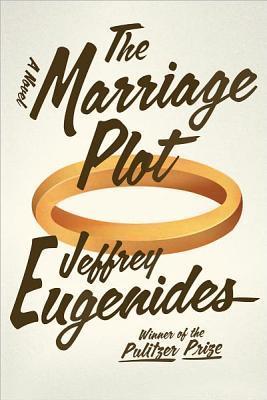More on this book
Community
Kindle Notes & Highlights
“There is no happiness in love, except at the end of an English novel.”
Almost overnight it became laughable to read writers like Cheever or Updike, who wrote about the suburbia Madeleine and most of her friends had grown up in, in favor of reading the Marquis de Sade, who wrote about anally deflowering virgins in eighteenth-century France.
anti-imperialist, anti-bourgeois, anti-patriarchal, and anti-everything a smart young feminist should be against.
Books aren’t about ‘real life.’ Books are about other books.
but had had to go and be a total girl about it and convince herself that she was in love with him. Madeleine required emotion, apparently. She disapproved of the idea of meaningless, extremely satisfying sex.
“It’s proportional,” Leonard explained. “When you’re five, you’ve only been alive a couple thousand days. But by the time you’re fifty, you’ve lived around twenty thousand days. So a day when you’re five seems longer because it’s a greater percentage of the whole.”
Waiting attente / waiting Tumult of anxiety provoked by waiting for the loved being, subject to trivial delays (rendezvous, letters, telephone calls, returns). … Waiting is an enchantment: I have received orders not to move. Waiting for a telephone is thereby woven out of tiny, unavowable interdictions to infinity: I forbid myself to leave the room, to go to the toilet, even to telephone (to keep the line from being busy) …
Being fortunate had dulled her powers of observation.
And it was during this period that Madeleine fully understood how the lover’s discourse was of an extreme solitude. The solitude was extreme because it wasn’t physical. It was extreme because you felt it while in the company of the person you loved. It was extreme because it was in your head, that most solitary of places.
In Madeleine’s face was a stupidity Mitchell had never seen before. It was the stupidity of all normal people. It was the stupidity of the fortunate and beautiful, of everybody who got what they wanted in life and so remained unremarkable.
Education had finally led Mitchell out into life.
“I read a lot of Thomas Merton. Merton got me into Saint John of the Cross and Saint John of the Cross got me into Meister Eckhart and The Imitation of Christ. Right now I’m reading The Cloud of Unknowing.
“Only the hand that erases can write the true thing.”
unmodulated recitation of his young life’s failures, failures that in Leonard’s mind already foredoomed him to a life of ever-diminishing returns.
“Where’s Leonard?” Leonard asked. Leonard didn’t know.
someone who knows, from personal experience, how attractive it can be to think you can save somebody else by loving them.”
People don’t save other people. People save themselves.”
Enlightenment came from the extinction of desire. Desire didn’t bring fulfillment but only temporary satiety until the next temptation came along. And that was only if you were lucky enough to get what you wanted. If you didn’t, you spent your life in unrequited longing.
we’re the man clutching the branch. Death awaits us. There is no escape. And so we distract ourselves by licking whatever drops of honey come within our reach.
He thought about the people he knew, with their excellent young bodies, their summerhouses, their cool clothes, their potent drugs, their liberalism, their orgasms, their haircuts.
Every letter was a love letter.
Instead of providing a sense of homecoming, the experience sapped Mitchell, as if he’d been photocopied over and over again, a faint reproduction of some clearer, darker original.
A representative image of Leonard’s freshman year would be of a guy lifting his head from an act of cunnilingus long enough to take a bong hit and give a correct answer in class.
What was interesting about being the needy one was how much in love you felt.
The hope was that love transcended all differences. That was the hope. Leonard wasn’t giving up on it. Not yet.
He’d just figured out the solution to all his problems, romantic, financial, and strategic. One brilliant move deserved another. “Marry me,” he said.
“I mean those who, when unhappiness is offered or proposed to them, positively refuse to feel it, as if it were something mean and wrong.”
something every child knew how to do, maintain a direct and full connection with the world. Somehow you forgot about it as you grew up, and had to learn it again.
Did it all come down to the physical, in the end? Is that what love was? Life was so unfair. Madeleine felt sorry for all the men who weren’t Leonard.
She’d already become the trembling wife, the ever-watchful custodian. She’d become “married to manic depression.”
It was because Madeleine hadn’t been coming to him; she’d only been leaving Bankhead. After opposing her parents all summer, Madeleine was giving in to the necessity of an annulment. In order to make that clear to herself, she’d come up to Mitchell’s bedroom in the attic.


